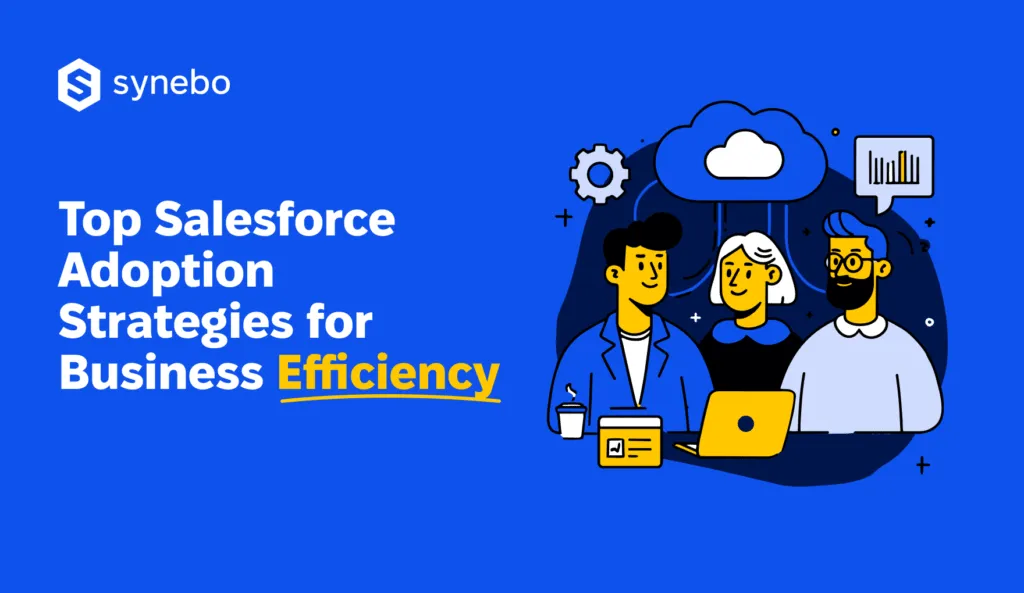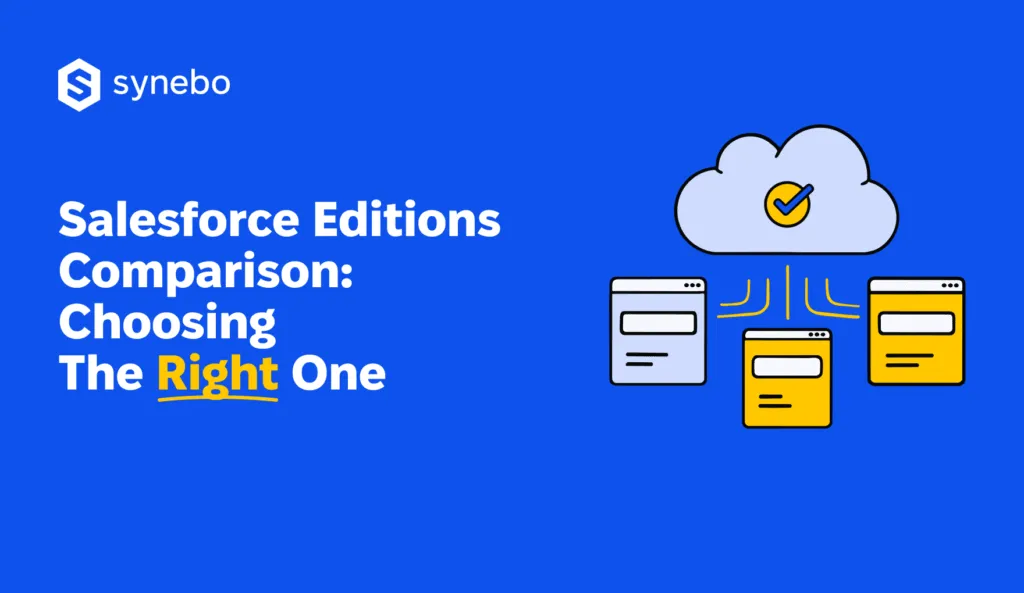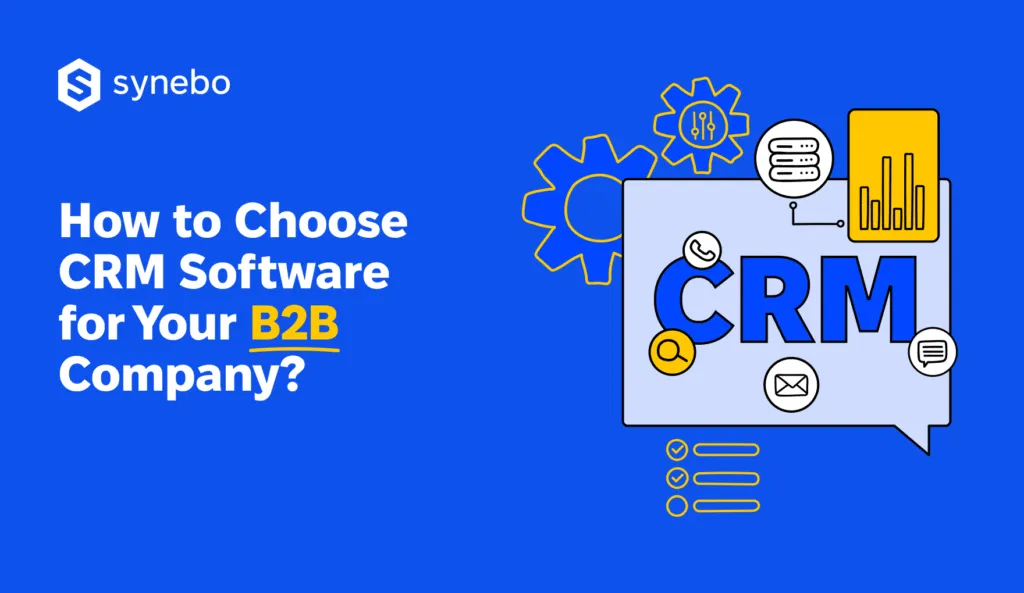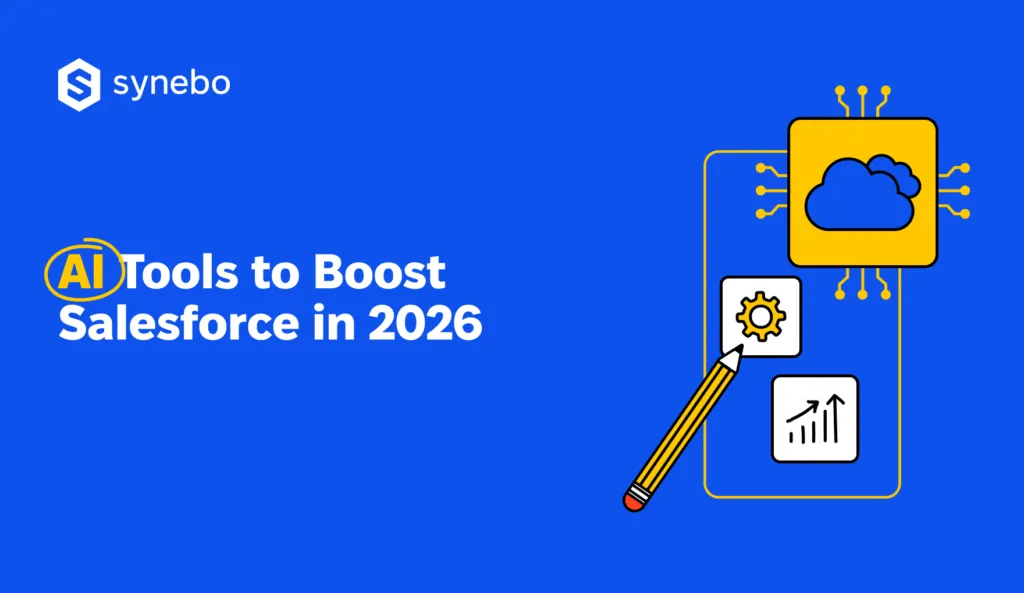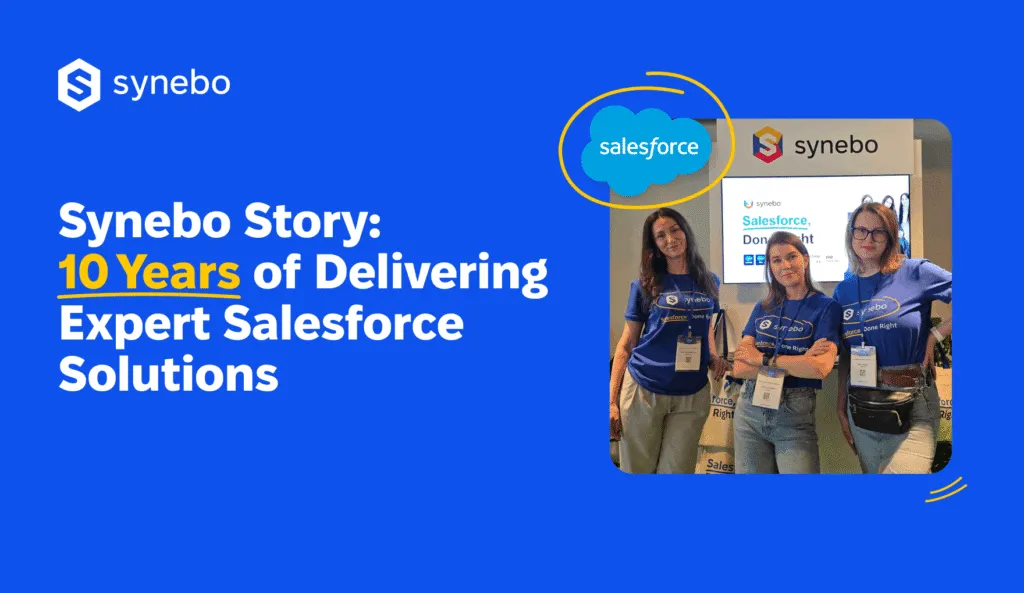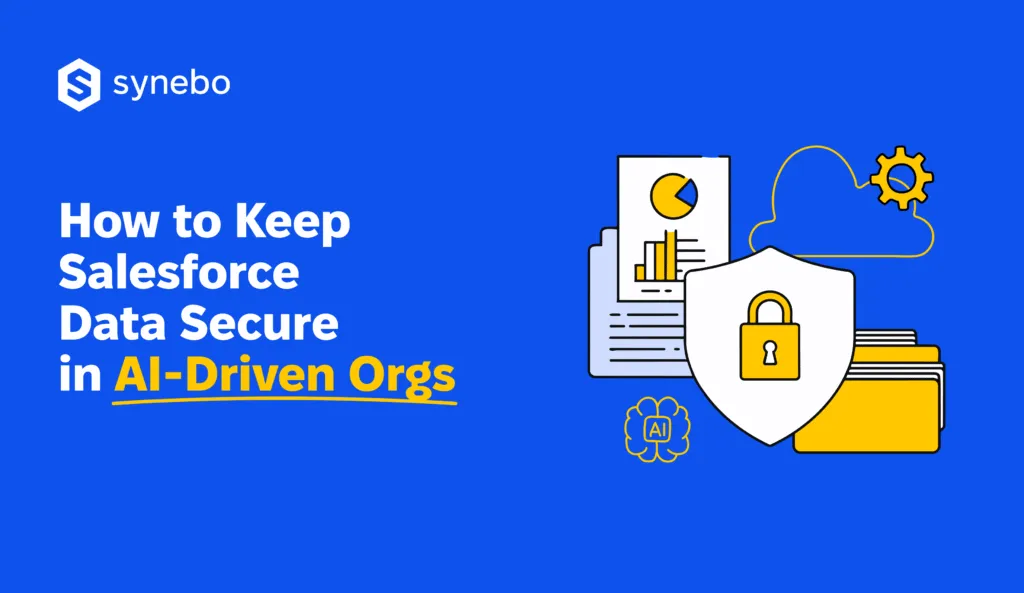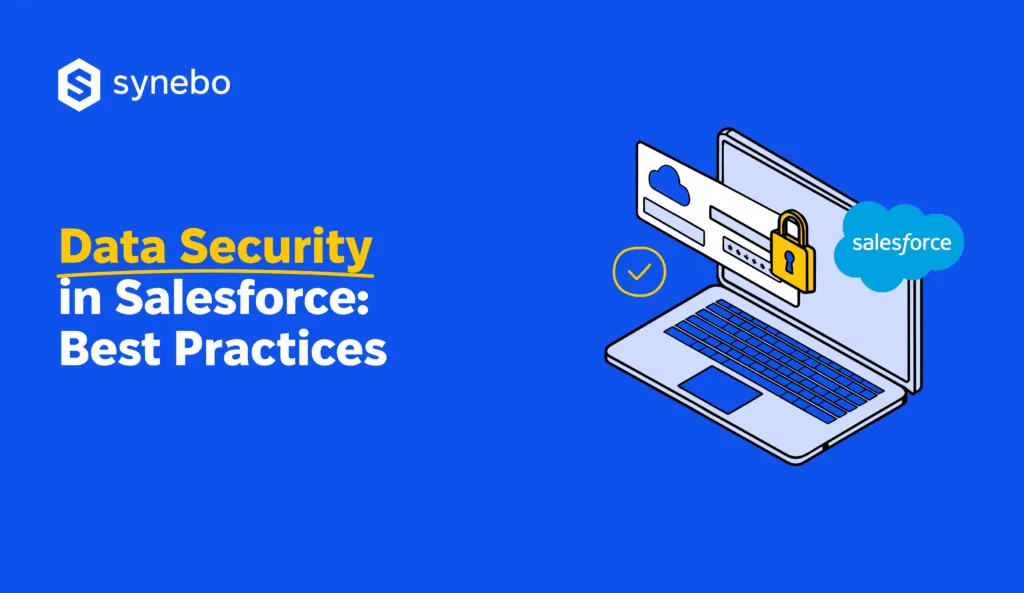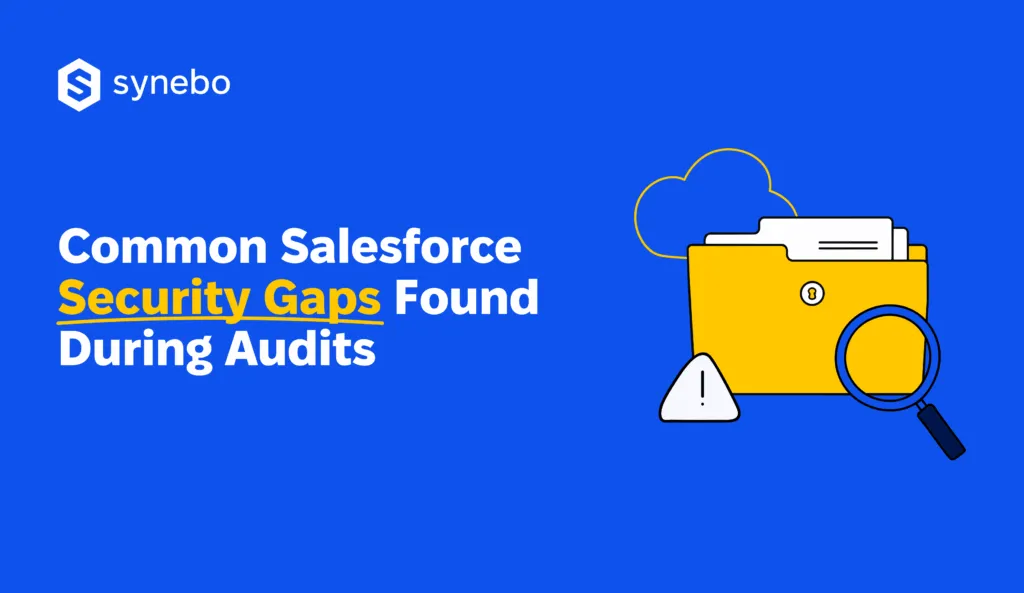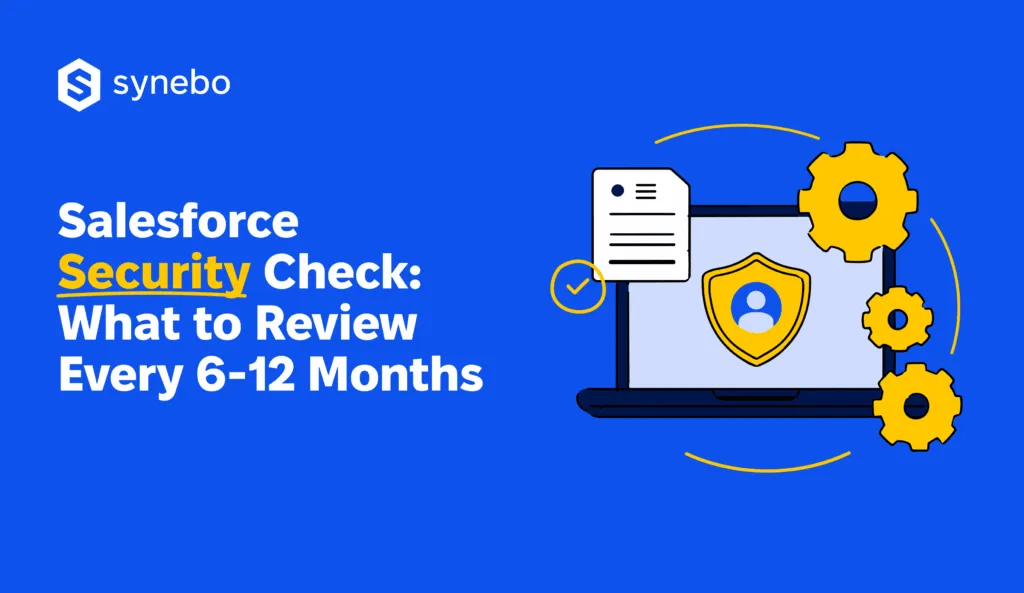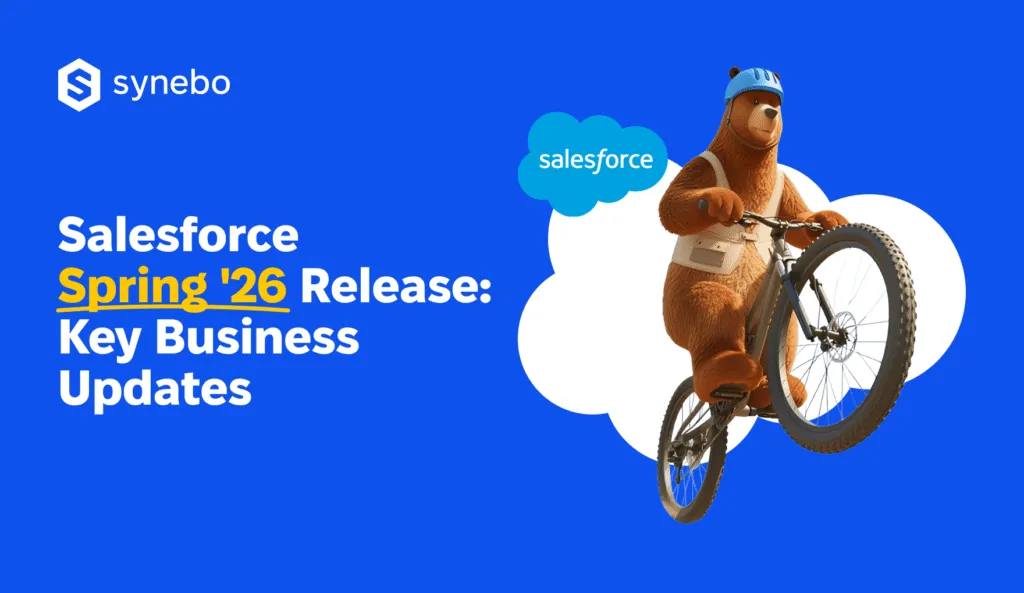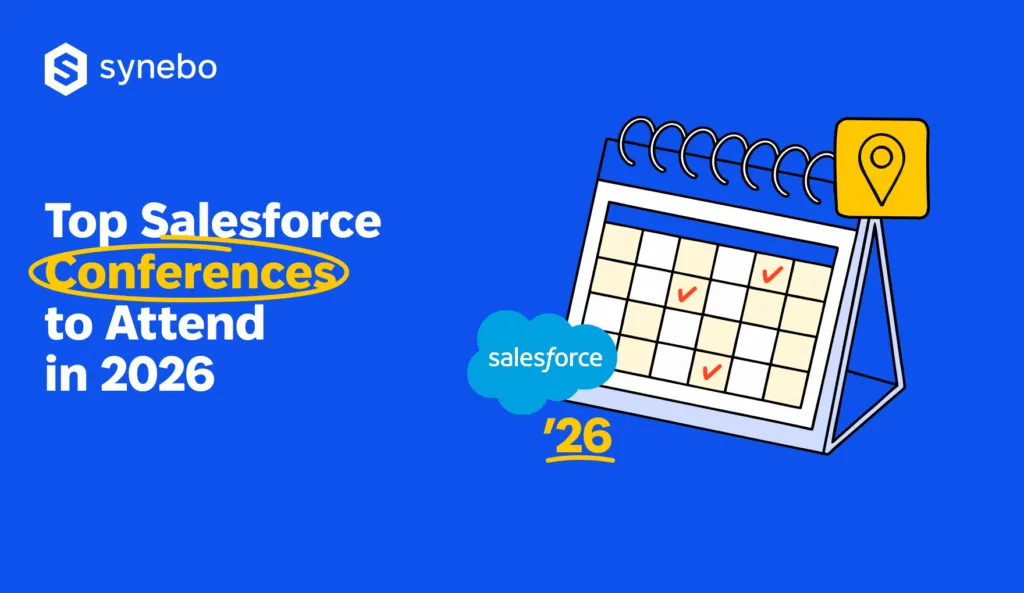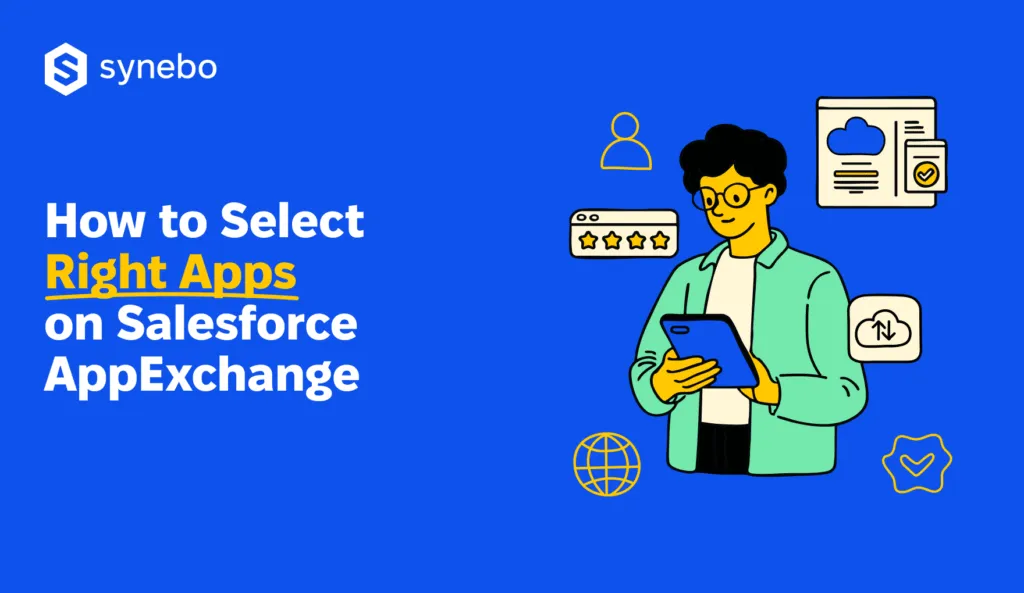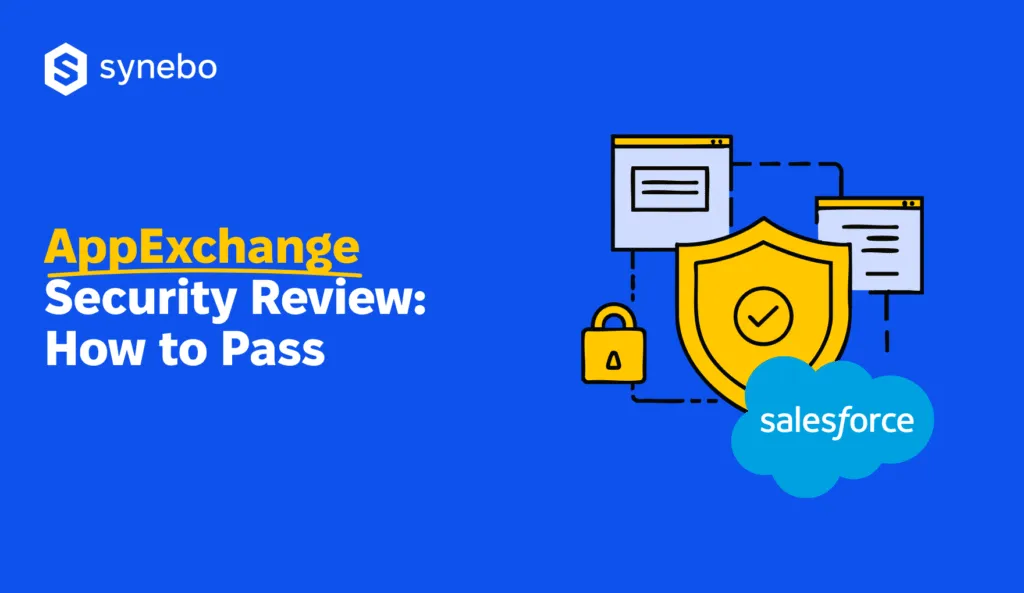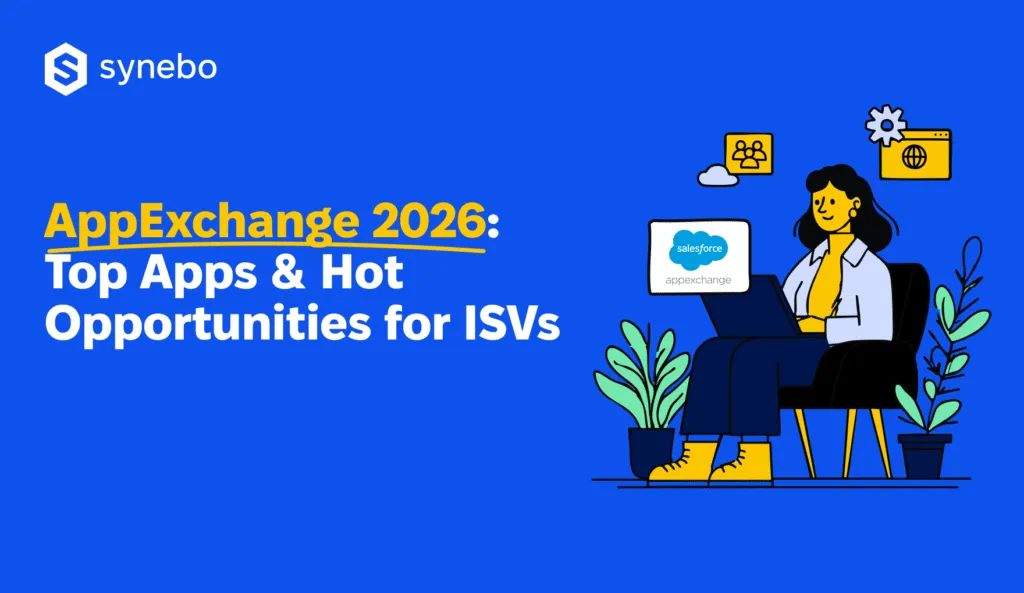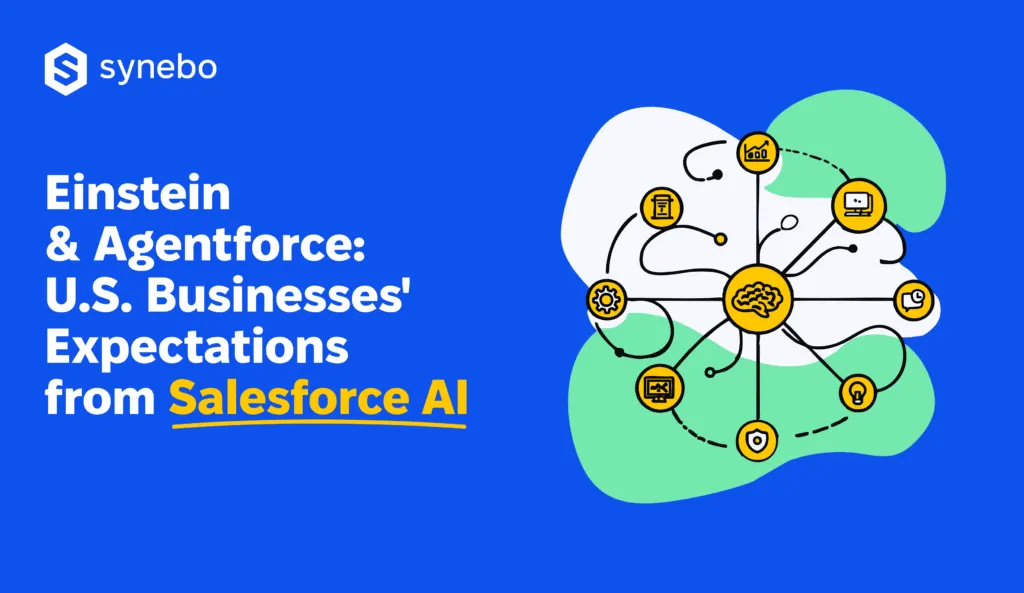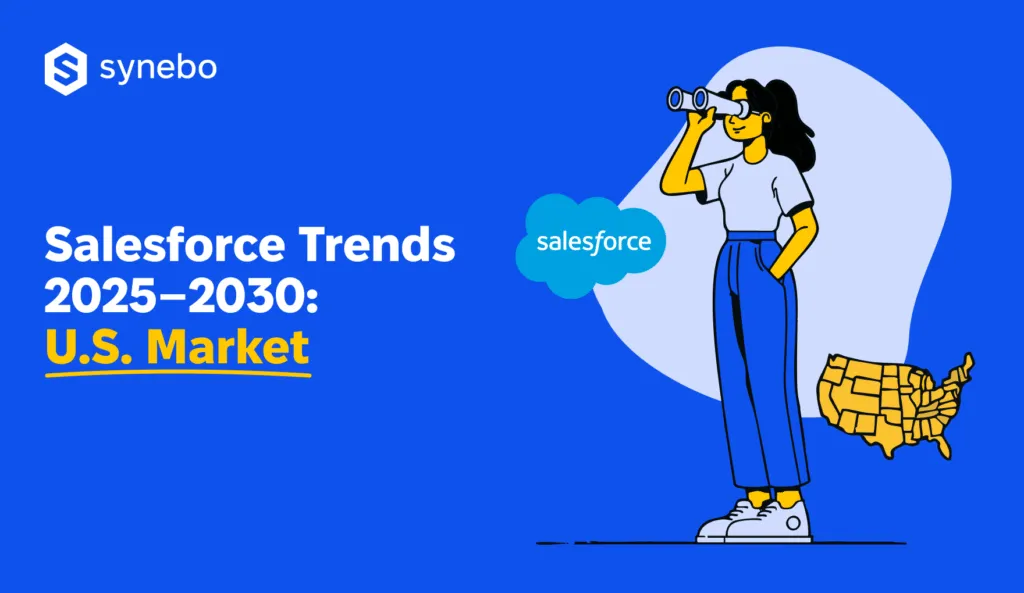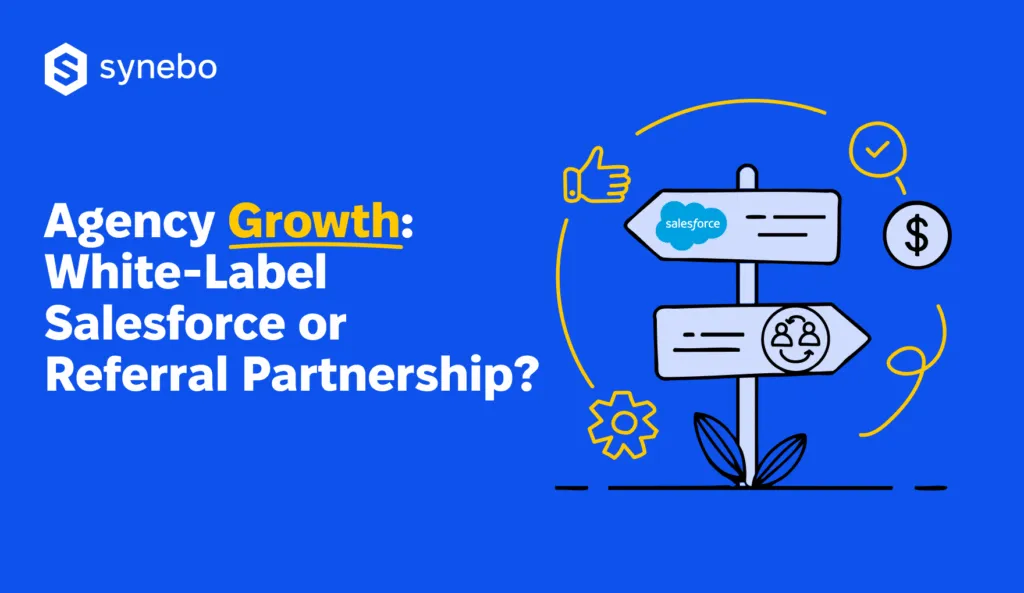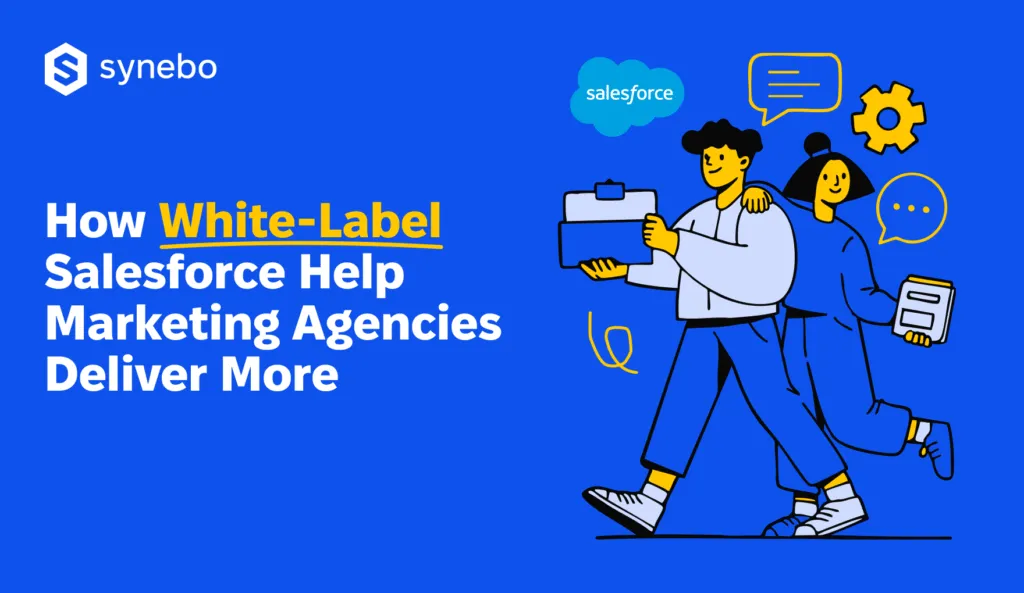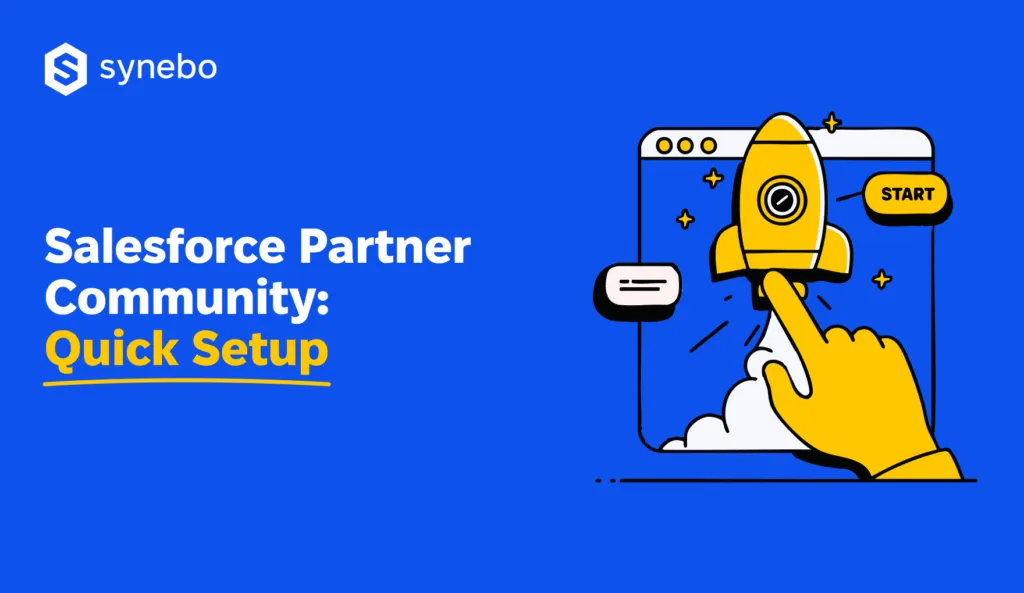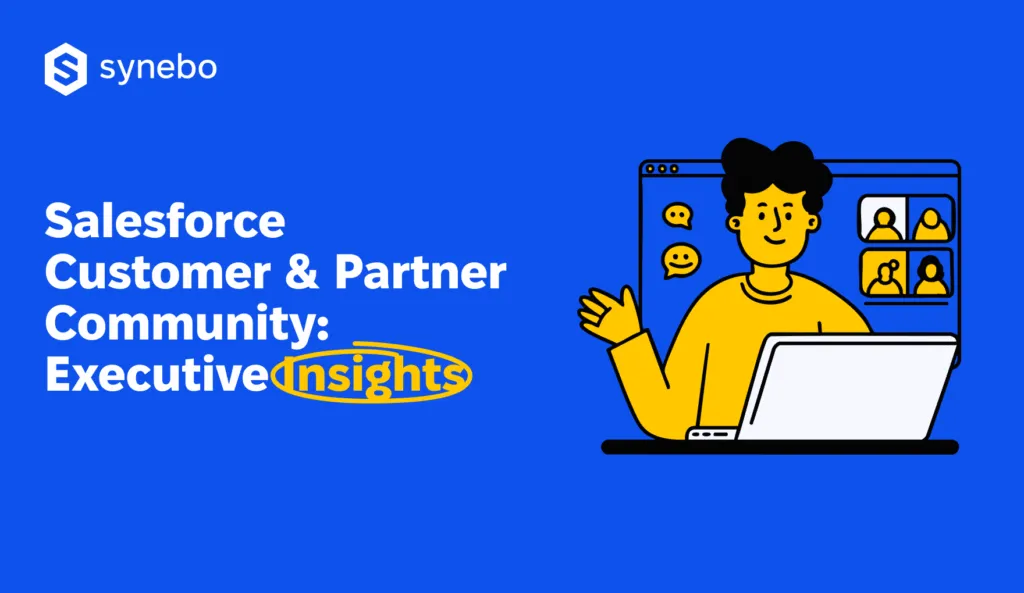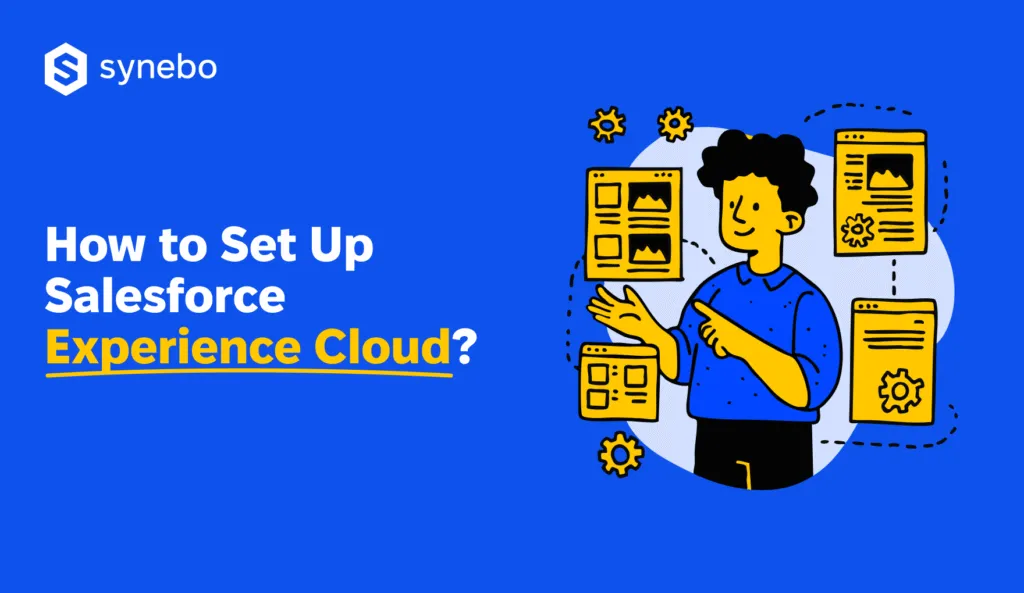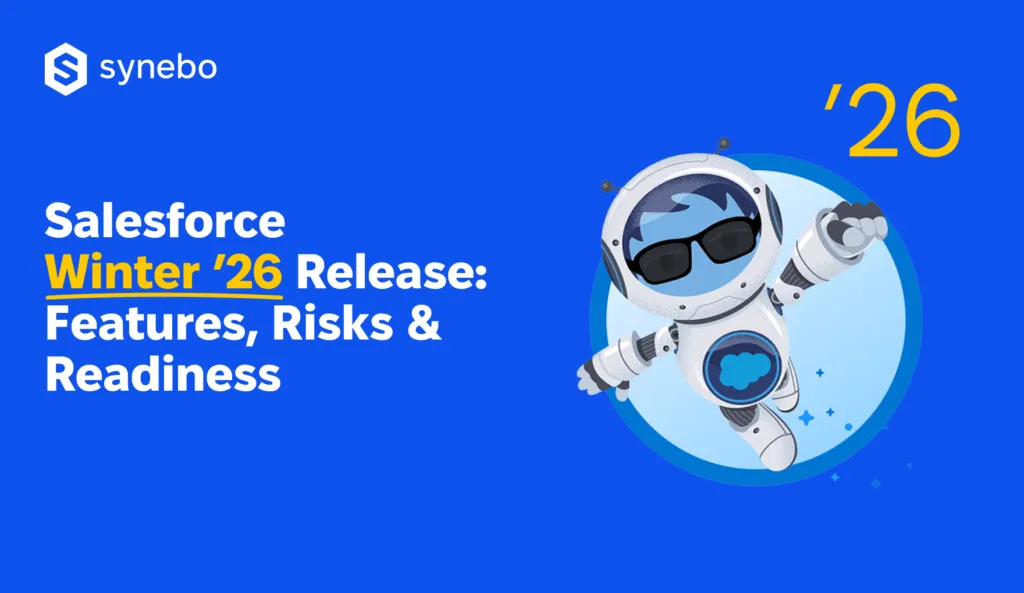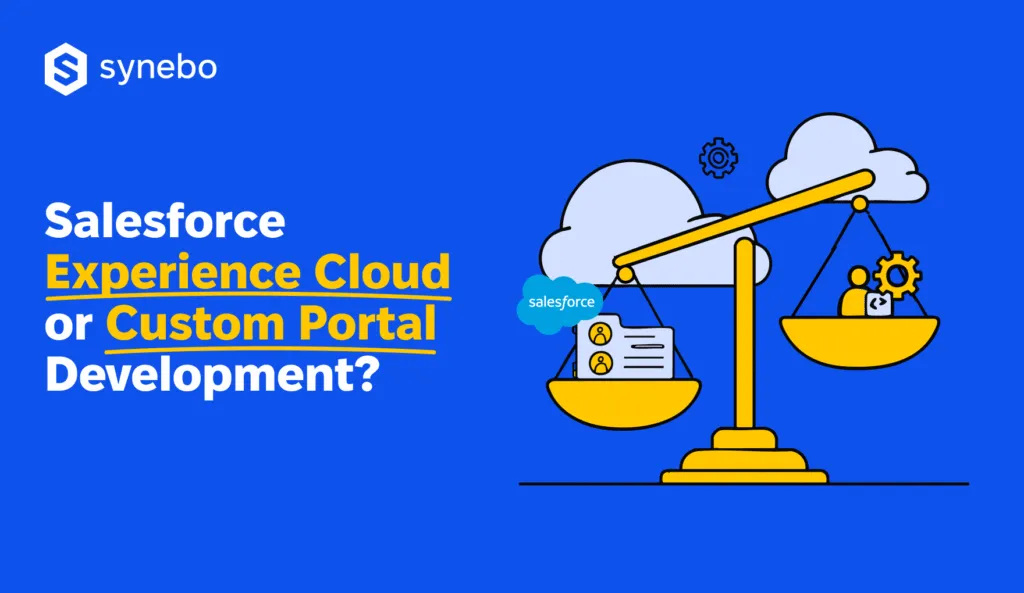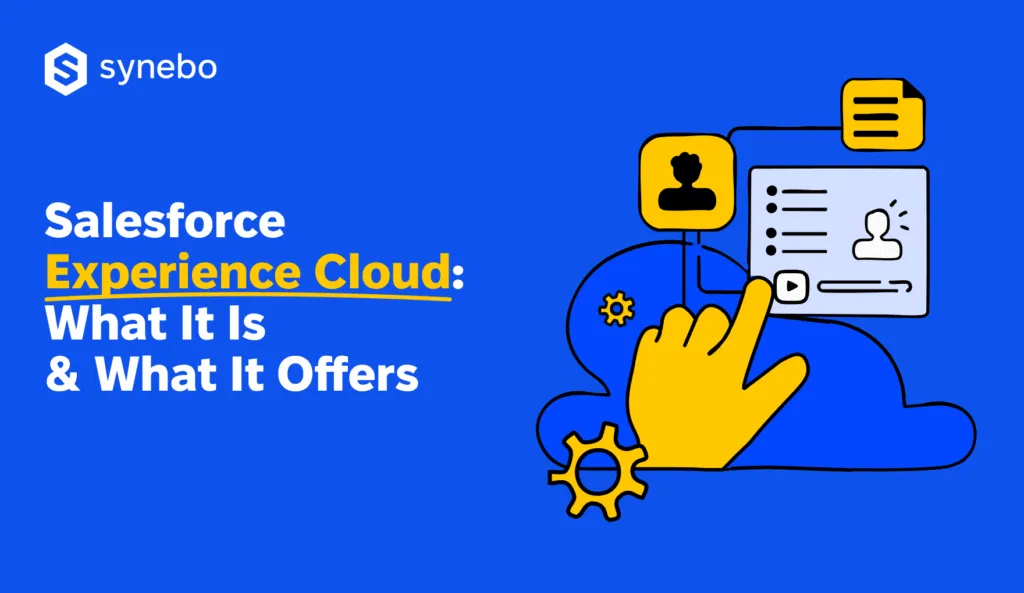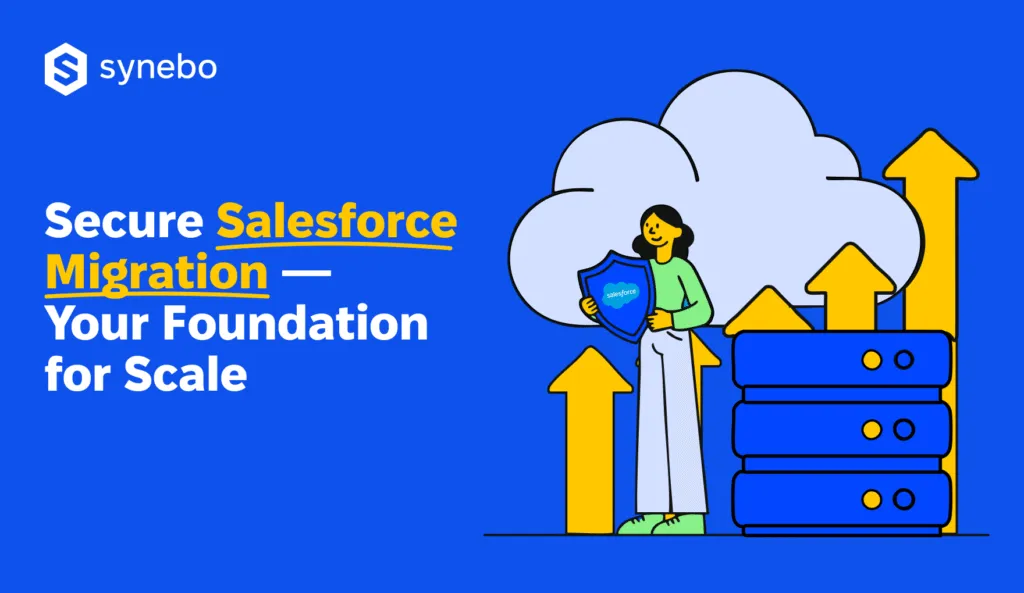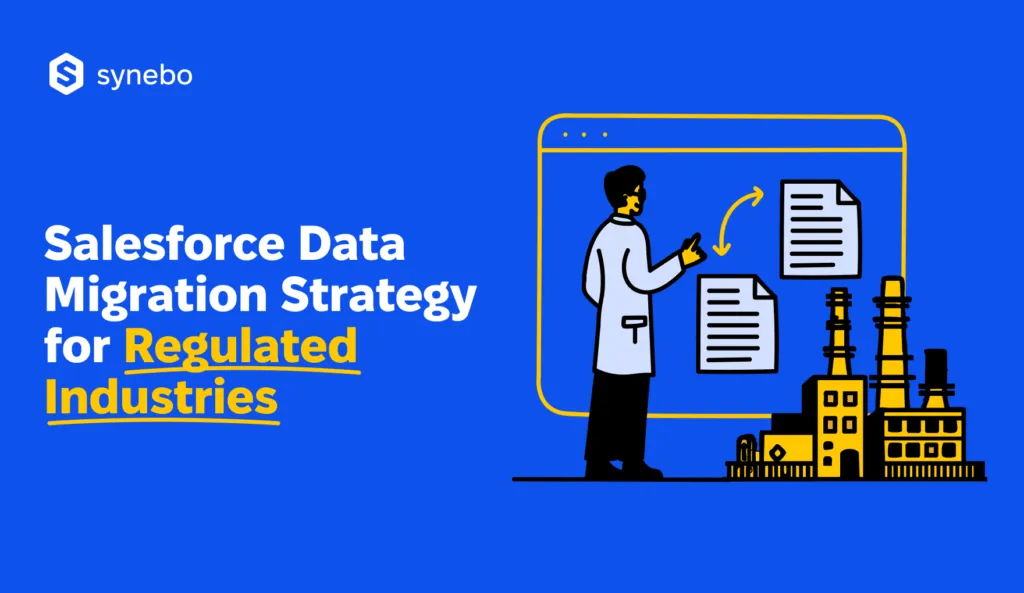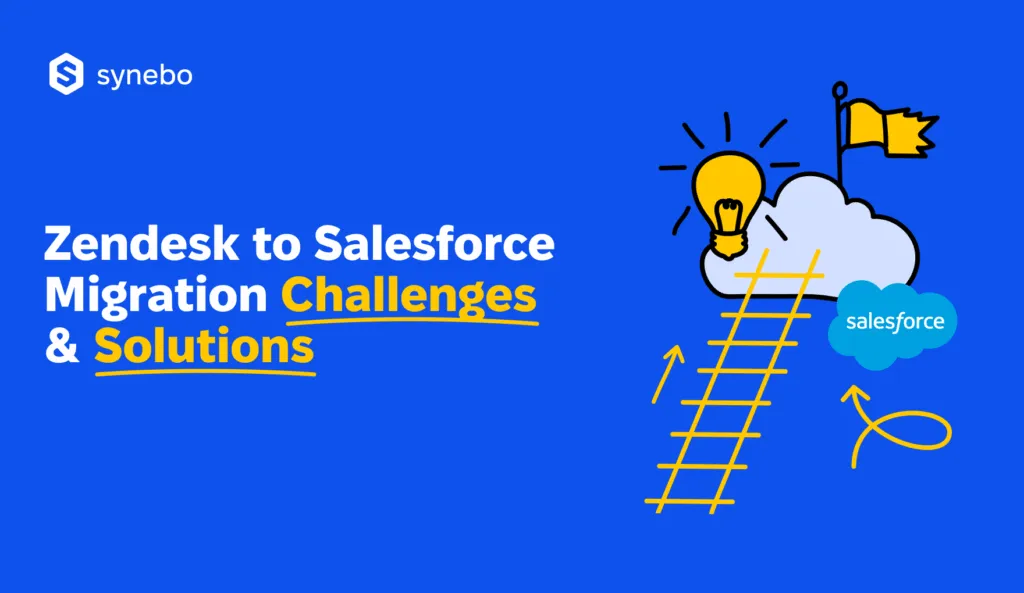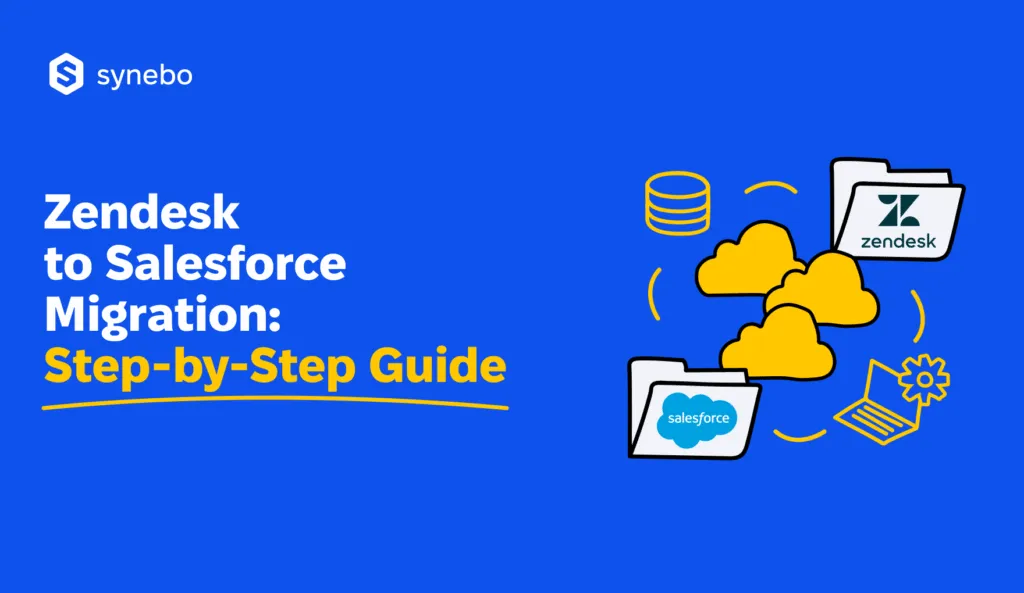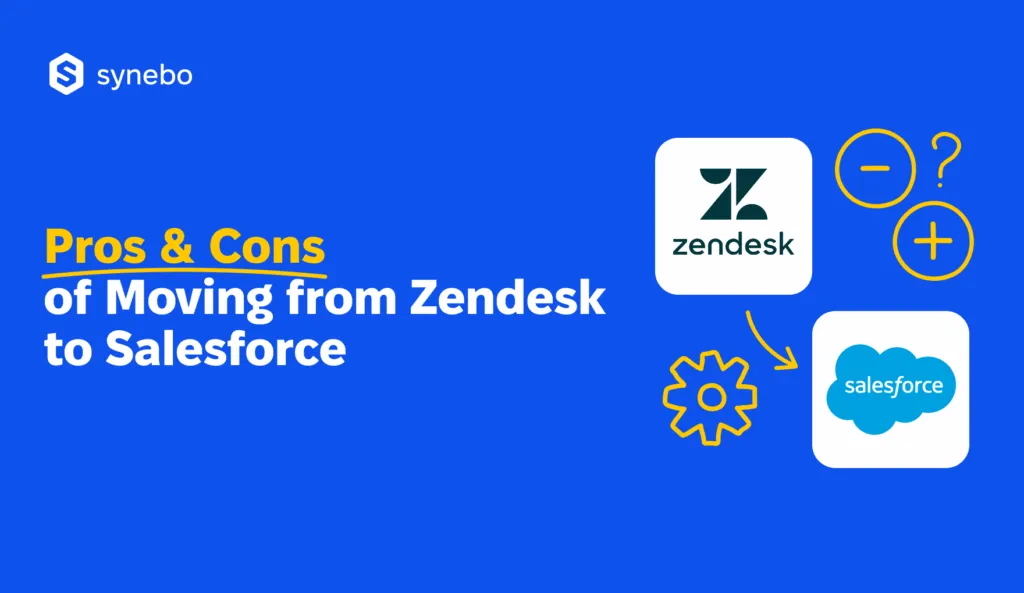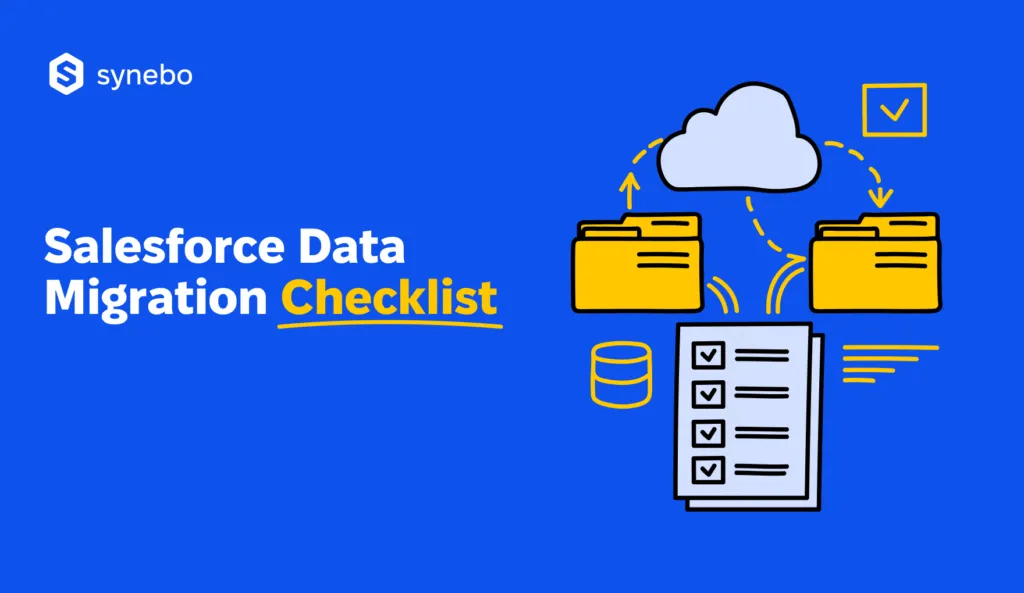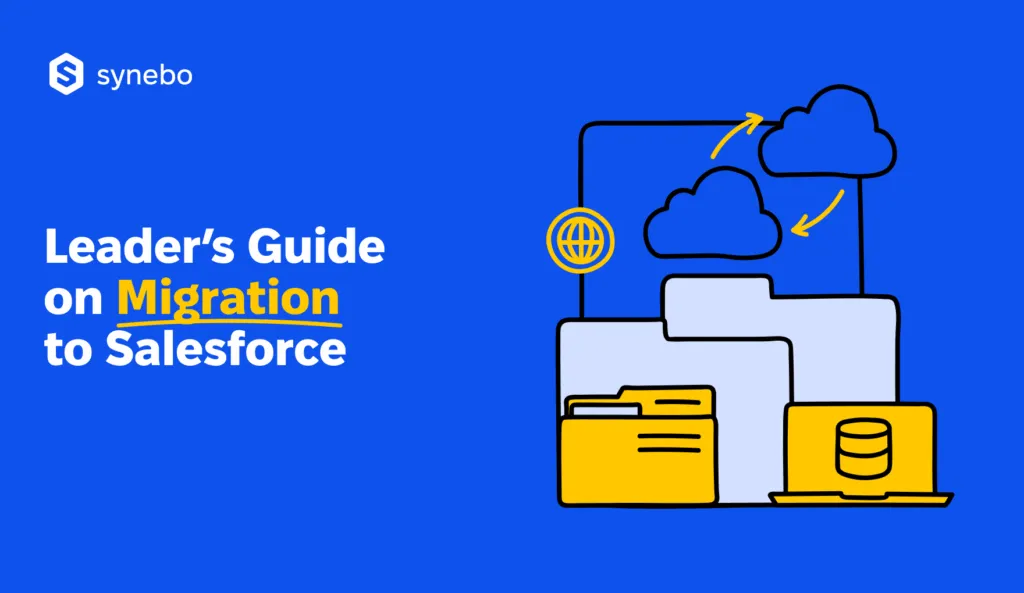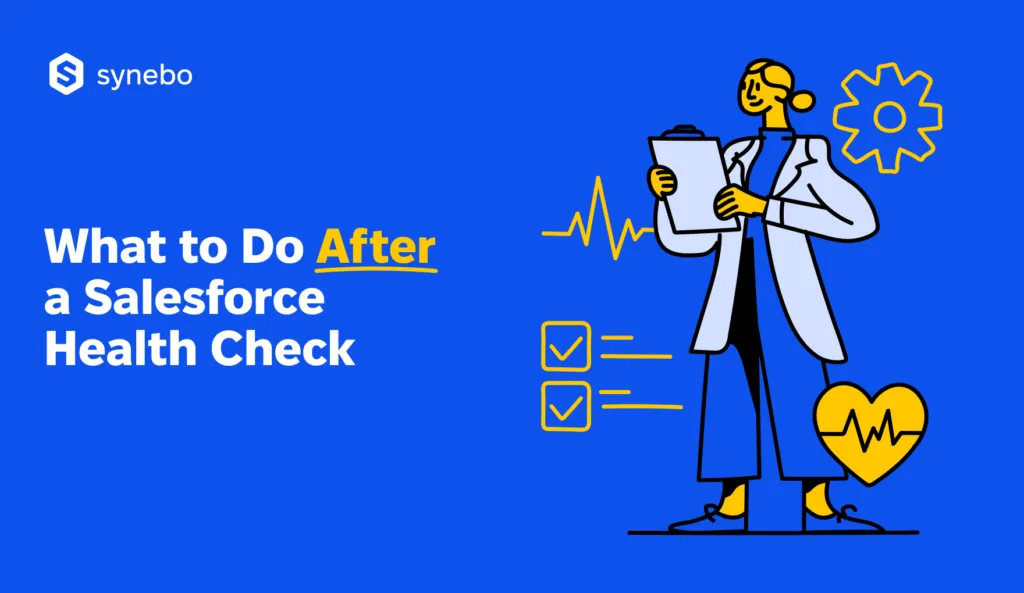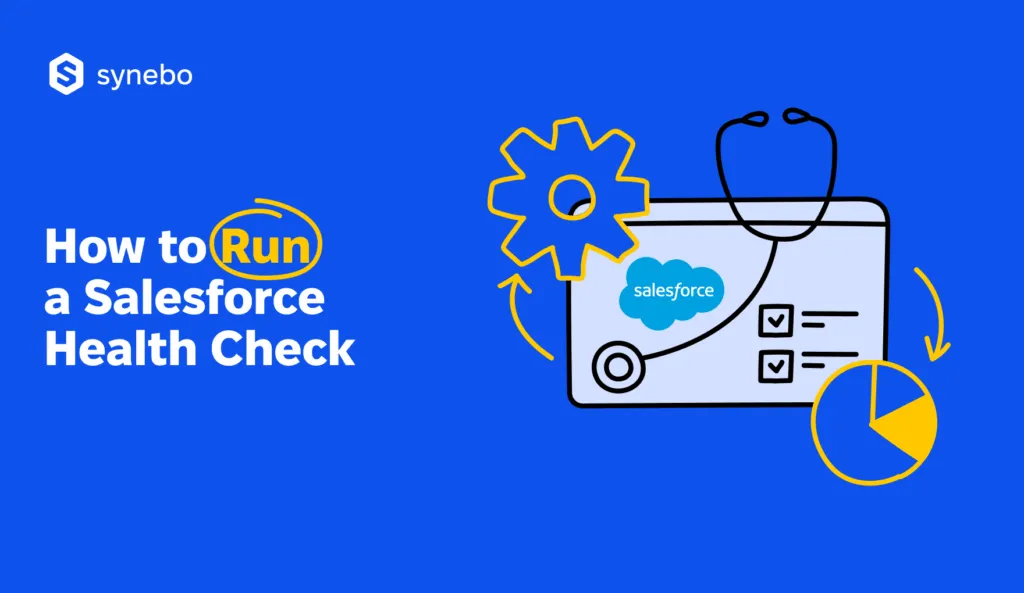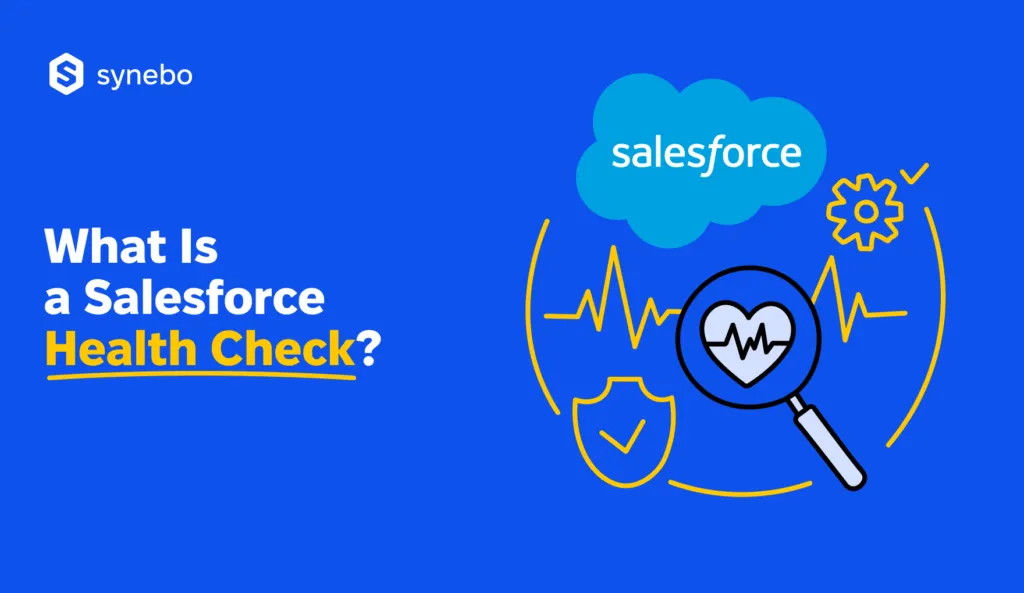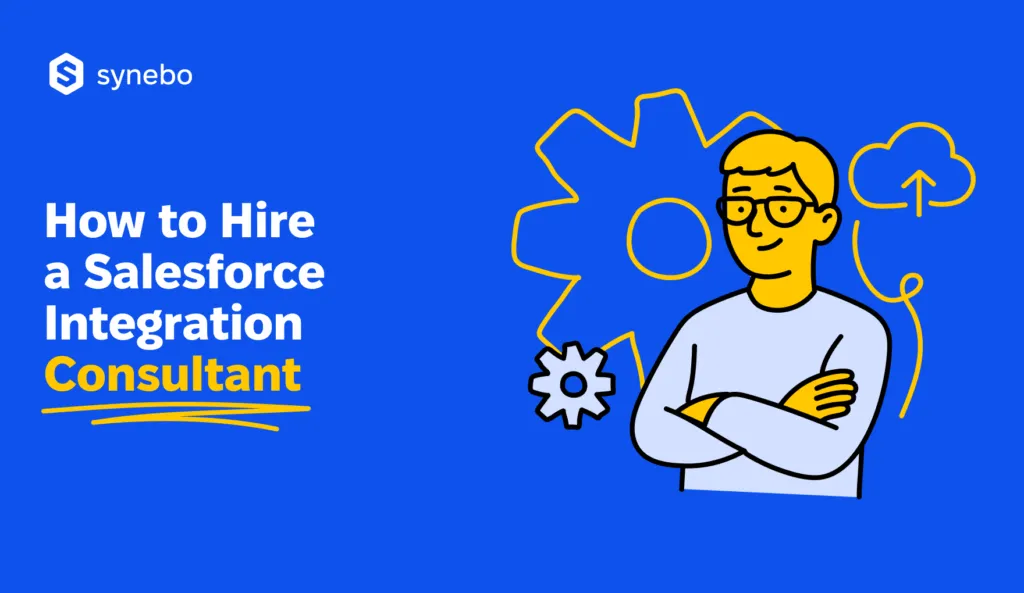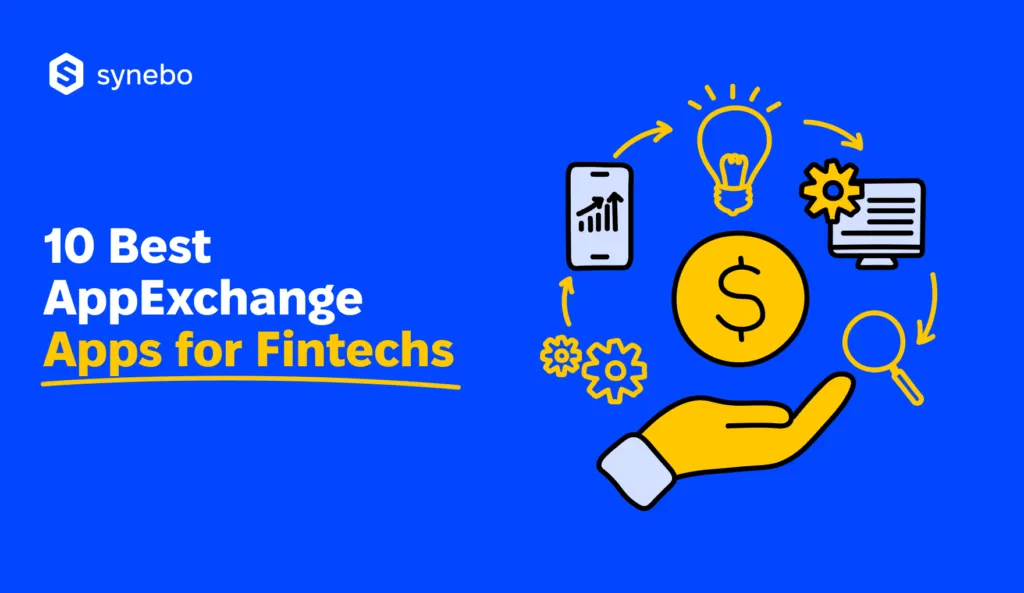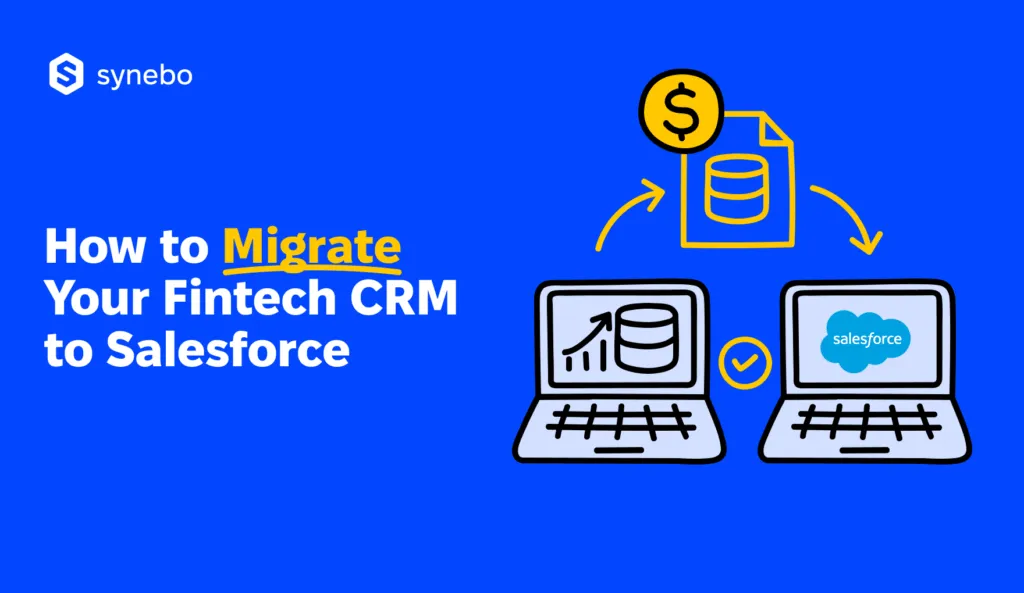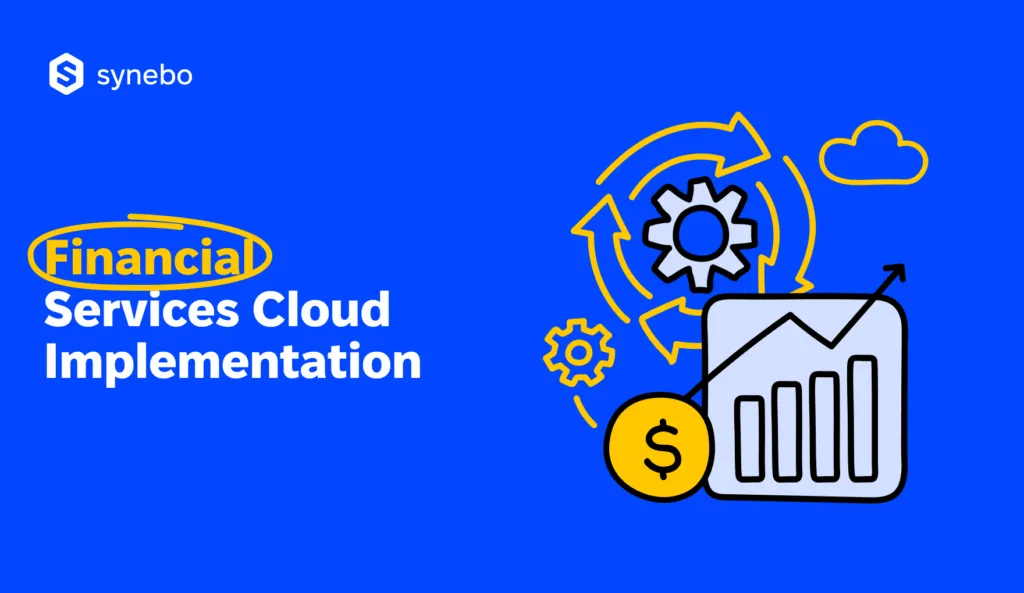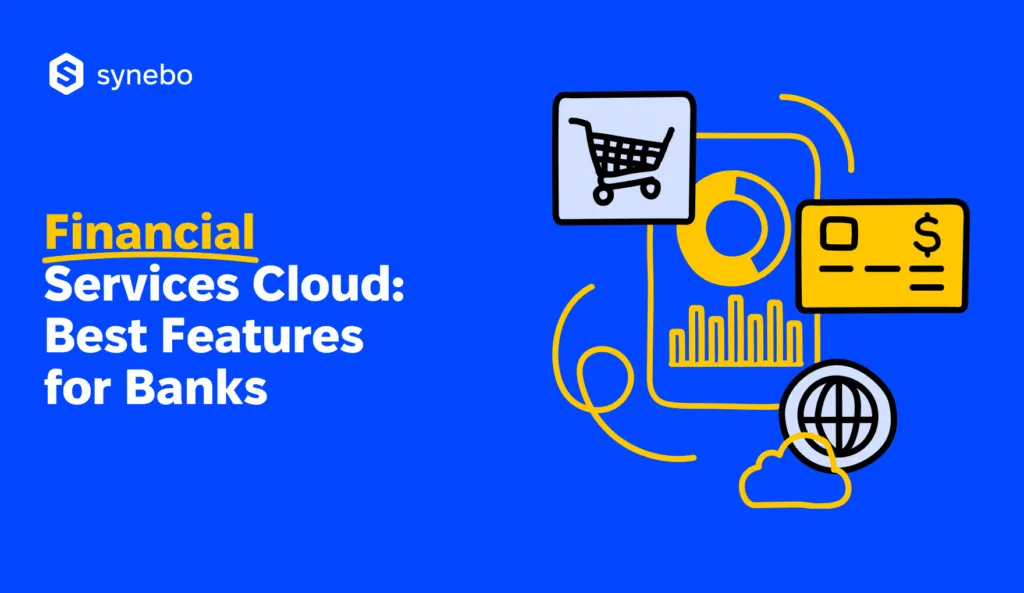Why Salesforce Integration with ERP Systems Matters

Integrating Salesforce with ERP systems is essential for businesses aiming to streamline operations and enhance efficiency. It bridges the gap between customer relationship management and enterprise resource planning, ensuring seamless data flow and more informed decision-making across departments.
In this post, you’ll discover the best practices for a successful Salesforce-ERP integration that can drive your business to new heights, explore challenges, and review the best solutions to them.
Salesforce Integration with ERP Systems: Overview

For instance, a sales rep can instantly access real-time inventory levels or order status updates from the ERP system within Salesforce, which streamlines the process of creating accurate quotes or delivering on customer promises. On the other side, the finance team can monitor sales activities directly in the ERP, ensuring that revenue forecasts and actual orders are always aligned. This integration enhances operational efficiency, reduces manual data entry, and minimizes the risks of errors and delays.
Key benefits include:
- Improved decision-making: With integrated data from both the CRM and ERP, decision-makers can have a 360-degree view of the business, enabling more informed strategic decisions.
- Streamlined operations: Automating workflows between Salesforce and ERP systems reduces the need for manual intervention, improving overall efficiency and freeing up employee time for more critical tasks.
- Enhanced customer experience: Sales teams gain real-time insights into product availability, pricing, and order fulfillment, ensuring more accurate communication with customers and faster delivery of services.
Interested in automating your Salesforce workflows? Check out our ultimate guide to mastering Salesforce automation tools and boost your productivity today.
Best Practices for Salesforce Integration with ERP Systems
#1 Define Clear Integration Goals
Before embarking on the integration process, it’s essential to outline specific goals. What do you want to achieve with this integration? Common objectives include streamlining order management, improving financial reporting, and reducing data silos across departments. Having a clear understanding of your goals will guide your choice of integration tools and the type of data flow between systems.
Example: In the case of Synebo’s integration with a leading manufacturing client, the goal was to automate order processing between Salesforce and their ERP system. By defining this clear objective, the project was laser-focused on delivering this capability, which reduced manual order entry times by 40%.
#2 Choose the Right Integration Method
Salesforce-ERP integration can be done using various methods, depending on your technical infrastructure, budget, and goals. The three most common approaches are:
- Custom APIs: Allows deep, tailored integration but requires significant development expertise. This is ideal for businesses with unique workflows.
- Middleware Solutions: Tools like MuleSoft (acquired by Salesforce) or Jitterbit provide ready-made connectors that bridge Salesforce with popular ERP systems such as SAP or Oracle.
- Native Integration Tools: Some ERP systems, such as NetSuite, offer out-of-the-box integrations with Salesforce. While easier to set up, these might lack customization options for complex workflows.
Expert Insight: “Choosing the right integration method is critical to success. It’s important to balance flexibility with ease of use. A custom API might sound attractive, but middleware can be more sustainable long-term when you consider updates and maintenance.” — Synebo’s Chief Integration Officer.
#3 Ensure Data Consistency and Synchronization
One of the major challenges with Salesforce-ERP integration is ensuring that the data remains consistent between the two systems. Data mismatches can lead to confusion, errors, and inefficiencies. To prevent this, establish a clear data flow plan, defining which system acts as the “source of truth” for different types of data.
Best practices include:
- Real-time vs. batch data synchronization: Decide whether the data should sync in real-time (ideal for customer-facing operations like order processing) or in scheduled batches (better for financial reconciliations).
- Data mapping: Align the data fields between Salesforce and the ERP to ensure that the information is properly translated between systems.
Example: A retail client integrated their Salesforce CRM with their ERP using Jitterbit. The integration was configured to sync customer orders every 15 minutes, ensuring that sales data was always up-to-date without overloading the systems with constant real-time updates.
#4 Prioritize Security and Compliance
When dealing with sensitive data such as customer information and financial records, security is paramount. The integration process should not expose vulnerabilities, and both systems must remain compliant with relevant regulations (e.g., GDPR, HIPAA).
Key security practices include:
- Data encryption: Ensure that data transfers between Salesforce and the ERP system are encrypted.
- User access controls: Implement role-based access controls (RBAC) to restrict sensitive data access to authorized personnel only.
- Audit trails: Maintain detailed logs of all data exchanges and modifications to ensure accountability and traceability.
Expert Insight: “Security is often overlooked in the rush to integrate systems, but it should be at the forefront of any project. Data breaches or regulatory non-compliance can result in hefty fines or damage to your reputation.” — Synebo’s Security Lead.
#5 Conduct Thorough Testing
Before going live, it’s crucial to thoroughly test the integration in a controlled environment. Testing should cover multiple scenarios, such as data synchronization during high-volume transactions or during system downtimes, to ensure there are no weak points.
Best practices for testing:
- Unit testing: Validate individual components of the integration to ensure they function as expected.
- End-to-end testing: Simulate real-world transactions to identify any breakdowns in the data flow.
- Performance testing: Stress-test the integration during peak operational loads to ensure it can handle the required data volumes.
Example in Action: During an integration between Salesforce and SAP for a large enterprise, Synebo’s team conducted extensive performance testing to ensure that sales orders could sync with the ERP system even during the client’s busy holiday season. The testing revealed bottlenecks that were promptly addressed before the integration went live.
Read our detailed blog on proven best practices for Salesforce CRM optimization and take your CRM to the next level.
Salesforce Integration with ERP Systems Challenges
Challenge 1: Data Silos
|
Problem |
Solution |
Technical Details |
|
Isolated data in departments creates inefficiencies |
Conduct a data audit to identify silos |
Use data mapping tools to visualize data flow |
|
Lack of data sharing across systems |
Implement middleware solutions like MuleSoft or Boomi |
Middleware can unify different data formats |
|
Unstructured data spread across departments |
Centralize data via data warehousing |
Use ETL processes to gather and transform data for central access |
Example in Action: A global manufacturer used ETL processes to aggregate sales data from both Salesforce and their ERP system into a central data warehouse. This provided their teams with a unified view of data, enhancing collaboration.
Challenge 2: System Incompatibility
|
Problem |
Solution |
Technical Details |
|
Legacy ERP systems lack Salesforce connectors |
Leverage middleware to bridge systems |
Use API gateways to enable communication between systems |
|
Data formats are incompatible |
Implement custom adapters to manage incompatible data formats |
Data transformation processes ensure data from both systems is aligned |
|
Legacy systems are unable to communicate with cloud platforms |
Use custom APIs to integrate with legacy ERP systems |
Create REST APIs that allow cloud applications like Salesforce to interact with older systems |
Technical deep dive:
|
Middleware Solution |
Compatibility |
Example Use Case |
|
MuleSoft |
Salesforce, SAP, Oracle, legacy ERPs |
MuleSoft enables API-led connectivity for integrating Salesforce with older ERP systems, making it easier to manage customer orders and inventory |
|
Jitterbit |
Salesforce, NetSuite, Microsoft Dynamics |
Jitterbit offers ready-made connectors to integrate Salesforce with a wide range of ERP systems, simplifying workflows between departments |
Challenge 3: Data Synchronization Issues
|
Problem |
Solution |
Technical Details |
|
Inconsistent data between Salesforce and ERP systems |
Define a master data source for specific data types |
Establish data ownership for critical information like customer data (Salesforce) and financial data (ERP) |
|
Data changes are not reflected in real-time |
Implement webhooks and event-driven architecture |
Webhooks notify systems of updates; event-driven architectures trigger immediate updates across systems |
|
Risk of data conflicts when syncing |
Use data versioning to manage updates and resolve conflicts |
Implement a version control system to keep track of the latest changes and resolve data inconsistencies |
Besides:
|
Synchronization Type |
Ideal For |
Description |
|
Real-time Sync |
Customer-facing operations, order processing |
Use event-driven architecture to update Salesforce and ERP immediately when changes occur |
|
Batch Sync |
Financial records, reports |
Schedule batch synchronization to occur periodically (e.g., daily or hourly) to minimize system load during peak times |
Example in Action: A retail client needed real-time inventory updates to ensure stock levels were reflected instantly across both Salesforce and their ERP. Synebo’s integration used event-driven architecture with webhooks, ensuring that whenever stock was sold in Salesforce, the ERP system updated inventory immediately.
Challenge 4: Scaling the Integration
|
Problem |
Solution |
Technical Details |
|
Increasing data volume slows down the system |
Optimize APIs for high traffic and large data sets |
Implement pagination and data chunking to handle large data transfers efficiently |
|
Integration fails to handle peak load times |
Implement scalable architecture using cloud resources |
Leverage cloud services (AWS, Azure) for dynamic scaling during high-demand periods |
|
Performance degradation as the number of users grows |
Conduct load testing to identify system bottlenecks |
Use tools like JMeter or LoadRunner to simulate high-volume traffic and ensure smooth operation during peak loads |
|
Solution Type |
Scaling Strategy |
Example |
|
API Optimization |
Implement caching and pagination to manage large requests efficiently |
For large data transfers between Salesforce and ERP, RESTful APIs were optimized with caching mechanisms to reduce response times |
|
Cloud Resources |
Use cloud-based auto-scaling features to dynamically allocate resources |
AWS auto-scaling helped a Synebo client handle increased traffic during seasonal sales without performance degradation |
Example in action: A large retail client experienced spikes in order volume during peak shopping seasons. Synebo implemented auto-scaling cloud resources to handle these surges, ensuring seamless integration between Salesforce and the ERP even under heavy traffic.
Want to maximize the efficiency of your Salesforce instance? Get a comprehensive Salesforce Health Check with Synebo and ensure your system is running at its best.
Real-World Case Study: Synebo’s Salesforce Integration with ERP Systems for a Global Retailer
Synebo recently collaborated with a global retail chain to tackle one of their most pressing challenges: integrating Salesforce with a custom-built ERP system to streamline order processing and inventory management. The retailer needed real-time synchronization across its sales, stock levels, and customer support teams to ensure seamless operations and minimize manual errors.
Project overview:
- Objective: Automate order processing and integrate Salesforce with the retailer’s existing ERP to ensure real-time data flow between sales and inventory.
- Tools used: MuleSoft was chosen as the middleware to connect Salesforce with the ERP system, providing robust API management and real-time data exchange.
- Integration time: The entire integration process was completed in under six months, enabling the retailer to begin benefiting from enhanced workflows without significant downtime.
Key features of the integration:
- Real-time data synchronization: Every time a sale is made in Salesforce, the ERP system is updated in real-time, ensuring that inventory data is always current.
- Automation of order processing: With the Salesforce-ERP integration, the retailer was able to automate the order fulfillment process, drastically reducing manual data entry tasks.
- Improved customer support: Customer service agents could now view up-to-date order statuses and stock availability within Salesforce, improving response times and customer satisfaction.
Results:
- 70% reduction in manual order entry: By automating key steps in the order process, the retailer eliminated time-consuming manual input tasks, allowing staff to focus on higher-value activities.
- Increased operational efficiency: The real-time synchronization between sales and inventory led to fewer errors in stock management and faster processing times for customer orders.
- Faster time to value: The project’s six-month timeline meant the retailer was able to quickly reap the benefits of integration, including significant operational cost savings.
Looking for professional advice on Salesforce implementation? Leverage our Synebo’s Salesforce Consulting Services to drive your CRM success with expert guidance.
Conclusion: Maximizing Efficiency with Salesforce-ERP Integration
Salesforce Integration with ERP Systems can revolutionize the way your business operates, enabling better communication, streamlined workflows, and improved customer experiences. By following these best practices—defining clear goals, choosing the right integration method, ensuring data consistency, prioritizing security, and thorough testing—you can unlock the full potential of your Salesforce and ERP systems.
If you’re looking for expert guidance on Salesforce integration with your ERP, Synebo has extensive experience helping businesses just like yours.
The timeline depends on the complexity of the systems involved and the chosen integration method. Simple integrations using middleware can take a few weeks, while more complex custom API integrations might take several months.
Salesforce integrates well with popular ERP systems like SAP, Oracle, and NetSuite. Custom integrations with legacy systems are also possible using middleware or APIs.
Costs vary depending on the complexity of the integration, the systems involved, and the need for custom development. It’s best to work with an experienced consultant to get an accurate estimate for your specific needs.
Yes, Salesforce can integrate with multiple ERP systems, though this adds complexity to the integration. Using a middleware tool like MuleSoft can help manage these connections effectively.
Yes, real-time synchronization is possible, though it requires careful planning to avoid overloading systems with constant updates. Many businesses opt for a mix of real-time and batch updates depending on their operational needs.


